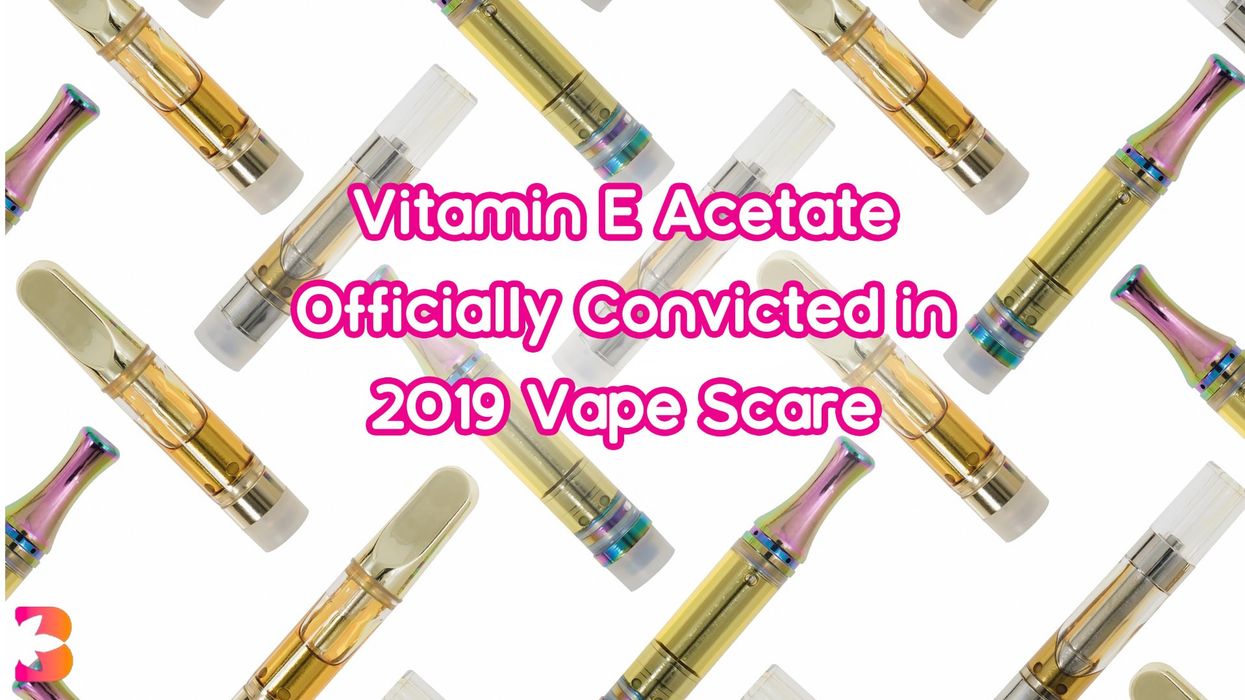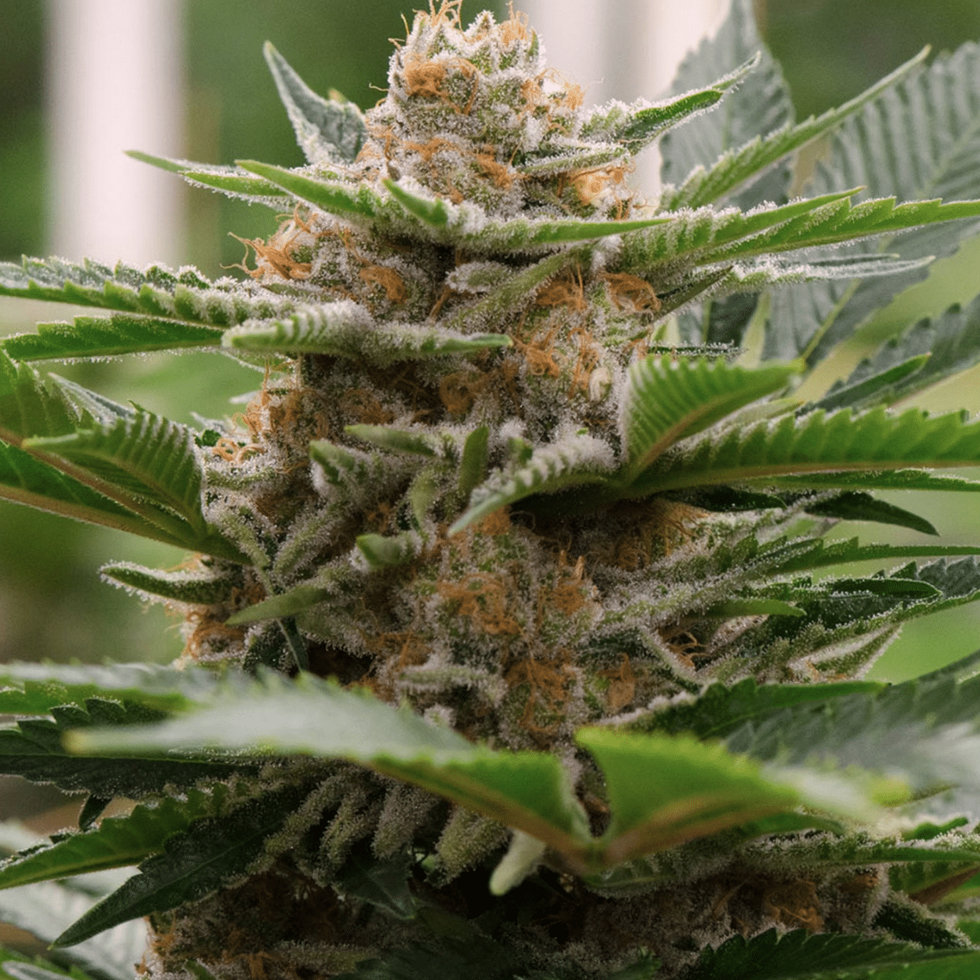The cannabis vaping industry could be on the cusp of recovery and more information key to keeping consumers safe.
In Q4 of 2019, the cannabis industry was blindsided by a string of hospitalizations and deaths that were linked to not only e-cigarettes, but cannabis vaping products. Additive Vitamin E Acetate, a substance found in some e-cigarettes and cannabis vapes, was the suspected culprit in lung-related ailments, which have since been dubbed: “electronic-cigarette, or vaping, product use–associated lung injury,” commonly abbreviated, “EVALI.”
According to the Centers for Disease Control (CDC), emergency room visits for EVALI increased notably in Aug. 2019 before peaking the week of Sept. 15.
Symptoms in patients primarily affected the respiratory system, and 47% of patients required intensive care, according to the New England Journal of Medicine.
Now, a new study by the Yale School of Public Health has findings which may signal a rebound for the cannabis vaping industry and effectively convicts Vitamin E Acetate as the culprit in EVALI injuries, hospitalizations and deaths.
The study, published in the journal Addiction, indicates: “Higher rates of e-cigarette and marijuana use in U.S. states did not result in more e-cigarette or vaping-related lung injuries (known as EVALI).”
The study's author, Assistant Professor Abigail Friedman said:
“If e-cigarette or marijuana use per se drove this outbreak, areas with more engagement in those behaviors should show a higher EVALI prevalence…This study finds the opposite result. Alongside geographic clusters of high EVALI prevalence states, these findings are more consistent with locally available e-liquids or additives driving the EVALI outbreak than a widely used, nationally-available product.”
Abigail Friedman
A concurrent study concluded by the CDC in Feb. 2020 resulted in “vitamin E acetate…most common in THC e-liquids that are informally-sourced—i.e., purchased off the street or home-mixed—as the ‘primary cause of EVALI,’” according to Yale School of Public Health.
In her study, Friedman noted policymakers should consider the effect their policies have on legal and illegal markets, adding that “well-established markets may have crowded-out use of riskier, informally sourced e-liquids.”
During the 2019 vaping scare followed by COVID-19, “many states responded to EVALI by banning the sale of both e-cigarettes and legal cannabis vaping products,” according to Media Post.
Massachusetts, the first state to ban sales of all vaping products, is reconsidering the situation now that more is know.
The state’s Cannabis Control Commission announced in a press release last month it was furthering loosening restrictions on cannabis vaping products in the Commonwealth.
“On December 12, 2019, the Commission issued the First Amended Quarantine Order authorizing licensees to sell newly manufactured vaporizer products, but requiring that more than 600,000 vaporizer products manufactured before December 12, 2019 remain subject to quarantine,” the release indicated.
Now, under a “Second Amended Quarantine Order, “licensees may retest and release, or destroy quarantined products subject to order requirements…Following the agency’s three-phased testing and public comment period.”
In the same release, Commission Executive Director Shawn Collins said:
“Fortunately, repeat tests of licensed product samples did not return any detectable levels of Vitamin E Acetate…This new order seeks to strike a balance between those products that can be retested or remediated safely for sale or repurposing with proper warning to patients and consumers, and those that cannot. As the nation continues to learn more about the broader health implications of vaping in all forms, I urge patients and consumers to understand the risks when they choose to consume any cannabis vaporizer product.”
Shawn Collins
Collins added that testing “did establish that heavy metal contamination may increase in vaping products over time.”
Despite the fact that there are still some questions over the safety of cannabis vaping, clarity over the cause - Vitamin E. Acetate - and the release of vapes from “quarantine” could signal a rebound in market.
Time will tell how the industry reacts and if cannabis vaporizers reach the same level of popularty again -- especially with the ever-present threat of COVID-19, which has resulted in a boon for other products in legal markets, like cannabis edibles.
Are you still missing out on The Bluntness newsletter? Sign Up today to stay in the loop.














 Strawberry Cough Strain Review - The BluntnessTHC Farmer
Strawberry Cough Strain Review - The BluntnessTHC Farmer Strawberry Cough Strain - The BluntnessSeednest
Strawberry Cough Strain - The BluntnessSeednest



 The Truth About THC Candle: Cannabis Candles & How to Make Your Own - The Bluntness
Photo by
The Truth About THC Candle: Cannabis Candles & How to Make Your Own - The Bluntness
Photo by 
 Why are law enforcement officials trying to freeze out cannabis legalization? Follow the money.Image by OpenClipart-Vectors from Pixabay
Why are law enforcement officials trying to freeze out cannabis legalization? Follow the money.Image by OpenClipart-Vectors from Pixabay